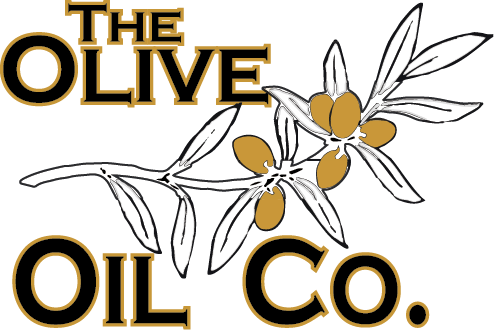Health Benefits
Virgin olive oils ore the oils obtained from the fruit of the olive tree solely by mechanical or other physical means under conditions, particularly thermal conditions, that do not lead to alterations in the oil, and which have not undergone any treatment other than washing, decantation, centrifugation and filtration. Virgin olive oils fit for consumption as they are include:
Olive Oil and Cancer
A number of research studies have documented that olive oil reduces the risk of breast cancer. Eating a healthy diet with olive oil as the main source of fat could considerably lower cancer incidence. The reason is that the cell mutations caused by cancer ore partly due to toxins which, when consumed through the diet, attack DNA. On passing through the liver, these toxins produce free radicals that then attack &NA. To combat such free radicals, the body needs vitamins and antioxidants like those contained in olive oil.
Olive Oil and Blood Pressure
Certain foods can raise blood pressure besides having an effect on body weight. Along with high blood cholesterol, cigarette smoking, obesity and diabetes, it is one of the main health problems of the developed world.
One in every four adults is hypertensive. This increases the risk of early death because of the damage to the body’s arteries, especially the arteries that supply blood to the heart, kidneys, brain and eyes. Addition of olive oil to a diet has a clear lowering effect on blood pressure. Regular consumption of olive oil decreases both systolic (maximum) and diastolic (minimum) blood pressure.
Olive Oil and Obesity
Obesity is a major health issue in the West because people eat large amounts and get little physical exercise. Nowadays, in cities especially, people are adopting a sedentary, stressful life. Over half the population of some industrialised countries is overweight. Obesity or overweight is when energy reserves, primarily in the form of fat, are excessive. It has been demonstrated that an olive-oil-rich diet leads to greater and longer-lasting weight loss than a low-fat diet. It is accepted better because it tastes good and it is a stimulus to eat vegetables.
Olive Oil and Cardiovascular Diseases
Cardiovascular diseases are the top cause of death in the industrialised world. A host of studies have documented that arteriosclerosis is closely linked to eating habits, lifestyle and some aspects of economic development. The progression of arteriosclerosis depends on many factors: the most important ones are high blood cholesterol, high blood pressure, diabetes and cigarette smoking.
“… The lowest rates of death from coronary heart disease are currently recorded in the countries where olive oil is virtually the only fat consumed.” – Professor Francisco Grande Covian
Olive Oil and Arteriosclerosis
It has been demonstrated that olive oil has an effect in preventing the formation of blood clots and platelet aggregation. Olive-oil-rich diets can attenuate the effect of fatty foods in encouraging blood clot formation, thus contributing to the low incidence of heart failure in countries where olive oil is the principal fat consumed.
Olive Oil and Cholesterol
Olive oil lowers the levels of total blood cholesterol. LDL-cholesterol and triglycerides. At the same time it does not alter the levels of HbL-cholesterol (and may even raise them), which plays a protective role and prevents the formation of fatty patch. These findings are very important in view of the high incidence of depression in the modern-day world and the great risk it poses in recurrent heart disease.
What is Cholesterol?
Cholesterol is a fatty substance contained in foods of animal origin. Diets containing a large amount of animal fats raise blood cholesterol level, which is one of the chief risk factors of cardiovascular disease.
Olive Oil and Diabetes
An Olive Oil rich diet is not only a good alternative in the treatment of diabetes, it may also help to prevent or delay the onset of the deseose. How it does so is by preventing insulin resistance lowering triglycerides, and ensuring better blood sugar level control and lower blood pressure.
Olive Oil and the Stomach
It reduces the risk of the flow or reflux of food and gastric juice up from the stomach to the oesophagus, the gastric content of the stomach is released more slowly and gradually into the duodenum, giving a greater sensation of “fullness”.
Olive Oil and the Pancreas
It produces a small amount of secretion by the pancreas, making this organ “work” little, but efficiently and enough to carry out all its digestive functions.
Olive Oil and the Intestine
It stimulates the absorption of various nutrients (calcium, Iron, magnesium, etc.).
Olive oil, therefore, is a fat that is digested and absorbed really well. It has choice properties and a mild laxative effect that helps to combat constipation and bad breath.
Olive Oil and the Skin
Skin tissue goes through a number of changes. External factors, such as the sun’s rays, speed up ageing by generating free radicals. Olive oil has a large proportion of vitamins A, D and K, as well as vitamin E, the main source of protection against the free radicals that produce cell oxidation. This makes it a good aid In specific therapies to treat skin disorders such as acne, psoriasis and seborrheic eczemas.
Olive Oil and Ageing
Osteoporosis is a reduction In bone tissue mass that increases the risk of fractures. There are two types. Type I occurs in middle-aged, post-menopausal women and type II in the elderly.
Olive oil appears to have a favourable effect on bone calcification, and bone mineralisation Is better the more olive oil is consumed. It helps calcium absorption, thereby playing an important part during the period of growth and in the prevention of osteoporosis.
Olive oil rich diets may also prevent memory loss in healthy elderly people.
Olive Oil during Pregnancy
Post-natal development of babies of mothers who consumed olive oil when pregnant is better in terms of height, weight, behaviour and psychomotor reflexes.
The foetus needs vitamin E to grow. The newborn baby also needs a store of vitamin E to fight against the oxidative stress caused on entering an oxygen atmosphere. Although not very abundant in olive oil, it Is present in sufficient quantity thanks to the resistance of olive oil to oxidation.
So, both the amount and the type of food consumed in the diet during pregnancy play a key part In the metabolic adaptations that occur in the mother and in her functional relationship with the foetus.
Olive Oil and Breast Feeding
It is essential to maintain the levels of this vitamin during breast feeding.
Vitamin E is also recommended for premature and new-born infants with kidney or pancreas failure because of the favourable effect it has on the hepato-biliary system. Its ratio of linoleic acid to linolenic acid (essential fatty acids) is similar to that of breast milk. The beneficial effect of oleic acid lasts beyond pregnancy.
Oleic acid also appears to exert a positive influence on growth and bone mineralisation and development during infancy.


